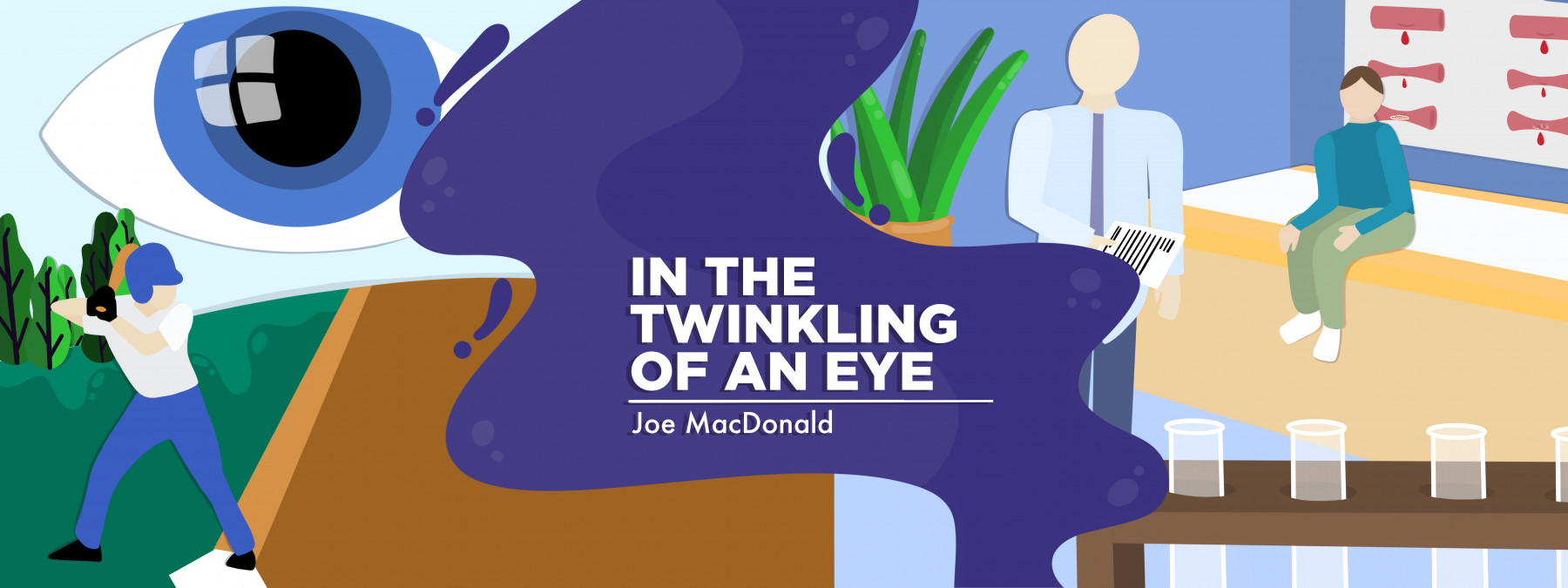How lessons from hemophilia help me during a busier-than-usual time
As my anxiety increases, I'm reminded that I understand difficult periods
Written by |

The past three weeks have been busy ones in the life of my church family. Since the middle of last month, I’ve performed four funerals and a wedding and led a critical church conference.
These events have had emotional consequences. My anxiety level continues to be high as I navigate the complex waters of helping families through grief. But I’m grateful that members of my congregation continue to offer hospitality to those who seek a safe space; their continued care for their neighbors provides me with a source of strength as together we navigate the choppy waters of unwelcome change.
One reason I recognize my anxiety at church is because of what I experienced during the struggles and hospitalizations that my youngest son, Caeleb, suffered in his early years. While I don’t minimize the gravity of losing a loved one, I also understand mourning. Along with my parishioners, I know what it’s like to feel numb and unsure of the next step when confronted with a devastating diagnosis or loss. I seem to understand their pain through the way I felt when Caeleb’s extended hospital stays proved routine.
And as I recognized my parishioners’ increased worry about returning to a sense of normalcy, I was reminded of the times I felt the same way.
Keys to understanding
While I never experienced my son’s physical loss, I’ve discovered other ways I feel defeat. I mourn the life free of chronic pain that his hemophilia won’t let him experience. I hurt when I acknowledge that his mobility issues keep him from moving in the world like many people his age. Caeleb doesn’t worry about the person he’ll take to the prom or the place his friend group may go next Friday. Instead, he struggles to get out of bed because the pain in his right leg and ankle is so great that he cannot put any weight on them.
Feelings of sorrow overwhelm me as I look at my boy and pray that tomorrow proves easier than today. In moments of frustration, I hide my feelings so I can better support him. I look into my soul to conjure hope so that Caeleb can feel connected to me in his most difficult moments. I make a ridiculous dad joke, hoping to bring a smile to his face. Many times, my attempts have fallen short as he’s continued to scream out in pain.
I also mourn because my son must use a vocabulary he shouldn’t have to know — words such as infusion, spontaneous bleeding episode, and chronic pain flow from his mouth like water. He uses them with a nuance afforded to a medical specialist. Caeleb not only defines the words, but he also experiences the internal jolts of pain that come with living with his disease. He doesn’t need to read about these issues in a textbook like other students because he lives the experience.
As my dear parishioners struggle to embrace a new normal, I offer myself the advice I give them. I tell those who mourn when a loved one dies that I offer prayers for comfort and the hope that a holy peace may overwhelm them. I assure those who express anxiety that church members stand ready to hold hands and walk with them in their time of grief. I share these words with others while hoping that I listen and pay heed to my own suggestions.
While feeling stress about wanting to comfort so many of my church family, I realize that I can grow in my response to anxiety. I often create a worst-case scenario in my brain and live as if it were my reality. Prayer and meditation are the most valuable tools to offer myself in such times of storm. Attention to breath and quiet reflection provide my mind a respite from the many possibilities that may or may not occur when struggling with my son’s chronic illness.
I know that mourning comes in many shapes and sizes and can often vary in intensity. In my roles as pastor and as caregiver, I seek to share strength and hope in the middle of difficult situations. As I meet families suffering from loss, I recall my own experience with finding a great community and letting it provide me with strength. I finish by remembering to love my church well — and to return the favor to myself while I’m at it.
Note: Hemophilia News Today is strictly a news and information website about the disease. It does not provide medical advice, diagnosis, or treatment. This content is not intended to be a substitute for professional medical advice, diagnosis, or treatment. Always seek the advice of your physician or another qualified health provider with any questions you may have regarding a medical condition. Never disregard professional medical advice or delay in seeking it because of something you have read on this website. The opinions expressed in this column are not those of Hemophilia News Today or its parent company, Bionews, and are intended to spark discussion about issues pertaining to hemophilia.




Leave a comment
Fill in the required fields to post. Your email address will not be published.